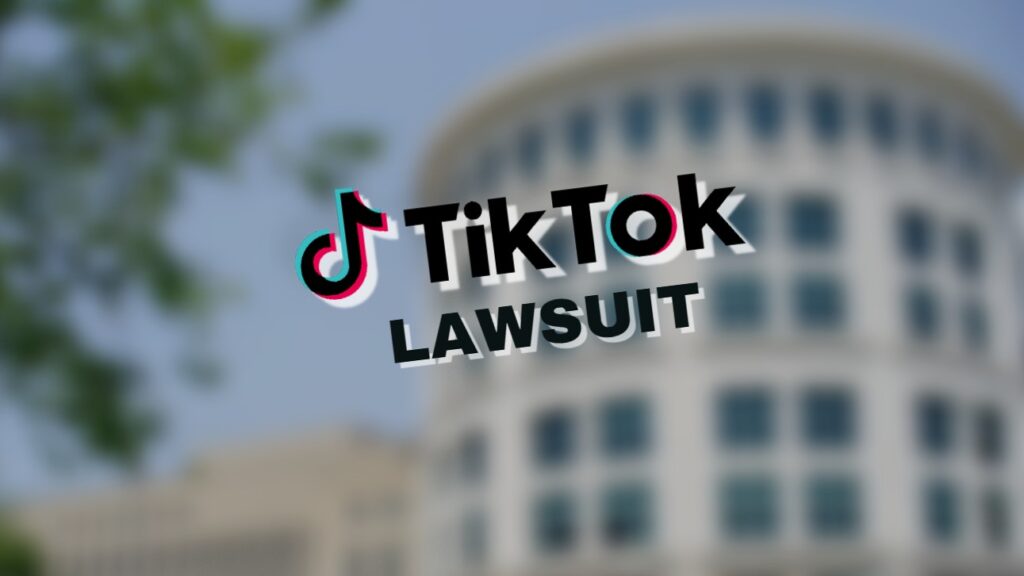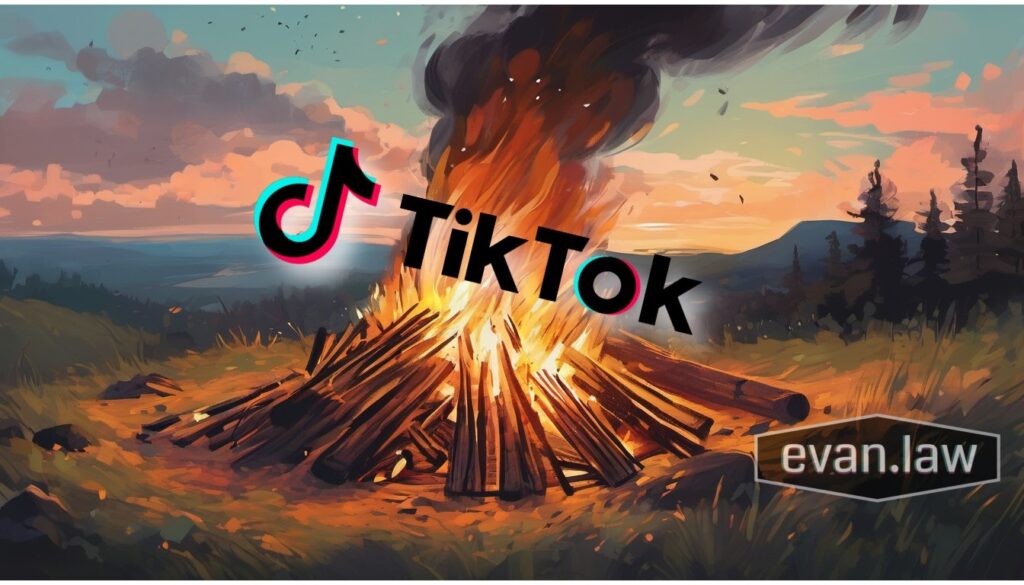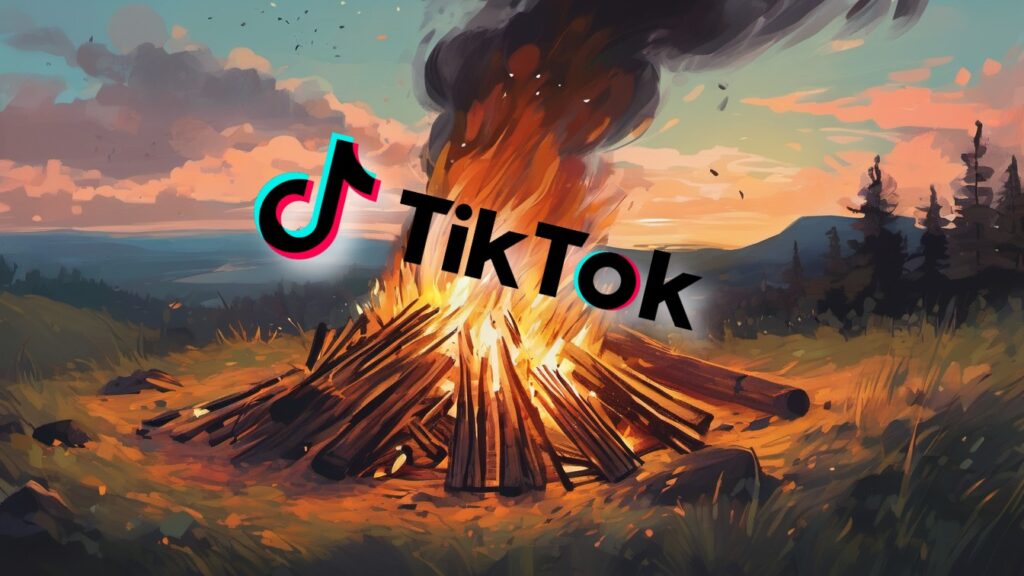
As anticipated, TikTok and ByteDance have initiated legal action against the U.S. government, challenging a recently enacted law that would ban TikTok unless ByteDance sells the company off in the next nine months to an entity not controlled by a foreign adversary. Petitioners argue that the law infringes on constitutional rights in several ways: the First Amendment, the prohibition against bills of attainder, and the Equal Protection Clauses and Takings Clauses of the Fifth Amendment. They are seeking a declaration from the court that the law is unconstitutional and an injunction to prevent the Attorney General from enforcing the law.
TikTok tries to make itself look good
The allegations of the complaint contest any characterization of the law as a mere regulatory measure on ownership. The companies assert that compliance with the ban — especially within the 270-day timeframe — is not feasible due to commercial, technical, and legal constraints. Moreover, petitioners argue that the law represents an unconstitutional overreach, setting a dangerous standard that could allow Congress to bypass First Amendment protections under a thin guise of national security.
The complaint discusses how TikTok enjoys over 170 million monthly users in the U.S. and more than 1 billion globally. The platform is known for its powerful recommendation engine, enhancing user engagement by presenting curated content on its “For You” page. Although developed by the China-based ByteDance, TikTok operates internationally, including a significant presence in the U.S., under American law.
TikTok claims to be a repeat victim of overreach
Petitioners continue by describing how the U.S. government has previously attempted to ban TikTok while citing national security concerns. These efforts began in earnest with President Trump’s 2020 executive order, which the courts blocked for exceeding the scope of the International Emergency Economic Powers Act (IEEPA) and for constitutional issues. Although discussions aimed at resolving these security concerns led to a draft National Security Agreement under President Biden, these talks have faltered, and a resolution remains elusive.
Selling isn’t easy
Petitioners claim the requirement for TikTok to divest its U.S. operations from its global network is impractical for technological, commercial and legal reasons. A U.S.-only version of TikTok would lose access to global content, severely diminishing its appeal and commercial viability. Technologically, transferring the sophisticated source code within the law’s tight timeline is unachievable. And legal constraints, particularly China’s stringent export controls, prevent the divestiture of essential technologies like the recommendation engine.
Why TikTok thinks the law is unconstitutional
Petitioners provide four grounds on which they believe the law is unconstitutional: (1) the First Amendment, (2) Article 1’s prohibition of bills of attainder, (3) the Equal Protection Clause of the Fifth Amendment, and (4) the Takings Clauses of the Fifth Amendment
First Amendment:
Petitioners assert that the law significantly limits their First Amendment rights, impacting both the company and the free speech rights of some 170 million users in the U.S. Petitioners claim that TikTok is recognized for its editorial activities in selecting and presenting content, and argue that these activities are protected forms of expression under the First Amendment. TikTok not only curates third-party content but also creates and shares its own, especially on topics such as support for small businesses and educational initiatives, which it considers core speech. Additionally, the law restricts other ByteDance subsidiaries from reaching U.S. audiences, further stifling protected speech activities.
Petitioners argue that the court should apply strict scrutiny to the law for three reasons. First, the law imposes content- and viewpoint-based restrictions, favoring certain types of speech such as business and travel reviews, over others such as political and religious speech, and appears motivated by the viewpoints expressed on TikTok. Second, the law discriminates between speakers, specifically targeting TikTok and other ByteDance subsidiaries by automatically deeming them as foreign adversary controlled, while other companies face less stringent criteria. Third, the law constitutes an unlawful prior restraint, suppressing speech in advance by prohibiting TikTok and its users from expressing themselves on the platform, a severe infringement on First Amendment rights.
Petitioners assert that the law fails the strict scrutiny test as it neither serves a compelling government interest nor is narrowly tailored. Citing national security, Congress has not provided concrete evidence that TikTok poses a specific threat or that the law effectively addresses such threats. The speculative nature of these risks and the continued use of TikTok by officials such as President Biden and members of Congress undermine the credibility of these security concerns. Furthermore, the law lacks a fair process or sufficient evidence to justify its restrictive measures. Additionally, the law is not narrowly tailored — less restrictive measures such as an agreement involving data security protocols with TikTok were already under negotiation. These alternatives, including more targeted regulations or industry-wide data protection laws, suggest that the law’s broad prohibitions and lack of procedural fairness for TikTok are unjustified, failing to meet the precision required by strict scrutiny.
Moreover, Petitioners argue that the law independently fails strict scrutiny because it is both under- and over-inclusive. It is under-inclusive as it neglects how other foreign and domestic companies could pose similar data security risks and spread misinformation, thereby suggesting selective enforcement against certain speakers or viewpoints. Over-inclusively, it targets all ByteDance-owned applications without evidence that these pose any significant risk, covering applications irrespective of their data collection practices and only if they display content. This flawed scope suggests no direct link between the law’s restrictions and the stated security concerns, weakening its justification under strict scrutiny.
And in a way similar to the way a federal court in Montana treated that state’s TikTok ban last year, TikTok argued that the law would not even survive under a less-demanding “intermediate scrutiny” standard. This is the standard applied to content-neutral time, place, and manner restrictions. Petitioners assert that the law completely prohibits TikTok speech activities across all settings in the U.S., requiring the law to be narrowly tailored to a significant government interest and not overly restrict more speech than necessary. But Petitioners assert the government cannot show its concerns about data security and propaganda to be anything beyond speculative. Furthermore, the law does not leave open adequate alternative channels for communication, as it significantly prevents TikTok from reaching its audience. For these reasons, along with the availability of less restrictive measures, TikTok asserts the law fails intermediate scrutiny as well.
The last part of the First Amendment argument is that the law closes off an entire medium of expression, which Supreme Court precedent generally deems unreasonable. And the law is constitutionally overbroad, as it prohibits all speech on ByteDance-owned applications, regardless of content. This broad suppression encompasses substantial unconstitutional applications, far outweighing its legitimate scope, making it a clear example of overbreadth as defined in U.S. law.
Bill of Attainder:
TikTok also challenges the law as an unconstitutional bill of attainder, which is prohibited by Article I of the U.S. Constitution. This part of the Constitution forbids Congress from enacting legislation that imposes legislative punishment on specific individuals or groups without a judicial trial. Petitioners say that the law specifically targets them, imposing severe restrictions by forcing the divestment of their U.S. businesses and barring them from operating in their chosen fields, akin to punitive measures historically associated with bills of attainder. Unlike other entities that can avoid similar prohibitions through less restrictive measures, petitioners face unique, punitive burdens without meaningful opportunities for corrective action, thus violating the separation of powers by allowing legislative encroachment on judicial functions. Additionally, petitioners assert that the law disproportionately impacts them by not applying the same standards to similarly situated companies, making it effectively a punitive measure against a specific corporate group, thereby rendering it a bill of attainder.
Equal Protection:
Petitioners’ third constitutional argument is that the law violates their rights under the equal protection component of the Fifth Amendment’s Due Process Clause by discriminatorily targeting them without justification. Unlike other companies deemed “controlled by a foreign adversary,” petitioners are automatically classified as such without the due process of notice and a presidential determination supported by evidence, which other companies receive. This classification imposes undue burdens on their free speech rights by bypassing the necessary procedural safeguards that other entities are afforded, such as detailed justifications for national security concerns that enable judicial review. Additionally, the law exempts other similarly situated companies from certain restrictions if they offer applications for posting reviews, unjustifiably leaving petitioners without similar exemptions. This differential treatment lacks a rational basis, undermining the equal protection principles by imposing arbitrary and discriminatory restrictions on petitioners.
Takings Clause:
And petioners’ fourth constitutional argument is that the law effects an unlawful taking of private property without just compensation, in violation of the Fifth Amendment’s Takings Clause. The law mandates the shutdown of ByteDance’s U.S. operations or forces the sale of these assets under conditions that do not assure fair market value, severely undercutting their worth. This compulsion to sell or close down constitutes a per se taking, as it strips ByteDance of all economically beneficial uses of its property without just compensation. Furthermore, the law also represents a regulatory taking by significantly impacting the economic value of ByteDance’s investments and interfering with reasonable investment-backed expectations. The legislative action here goes beyond permissible bounds, triggering a need for regulatory scrutiny under established criteria such as economic impact, disruption of investment expectations, and the nature of government action. As such, petitioners argue that the law unjustly deprives them of their property rights without adequate compensation, necessitating prospective injunctive relief.
Petitioners seek a judicial declaration that the law is unconstitutional and an injunction against its enforcement, arguing that the government’s measures are excessively punitive and not grounded in adequately demonstrated national security risks.



It’s now the law of the land that come nine months from now, if any of the app stores make TikTok available or if any hosting provider lends services enabling TikTok, those companies will face substantial penalties.That is, unless TikTok’s owner ByteDance sells off the company to an entity that is not located in or controlled by anyone from Russia, Iran, North Korea or China.The version of the law that the President signed on April 24, 2024 is pretty much the same as the one the House of Representatives passed in March 2024.
The only difference is that if in nine months there is a transaction underway to sell off TikTok, the President can grant one 90-day extension for the sale to be completed.
No doubt we’re going to see some serious free speech litigation over this. Stay tuned.